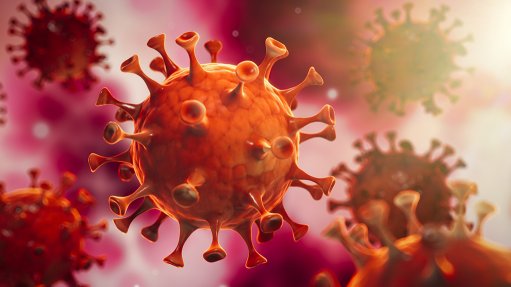
Transdisciplinary scientists from the University of Pretoria (UP) have published what they call “the only study from Africa” which shows that Covid-19 Delta variants were transmitted from humans to animals.
The team of scientists found that reverse zoonotic transmission of Covid-19 from asymptomatic animal handlers at a private zoo in Gauteng, posed a risk to big cats kept in captivity.
“Transmission of the Delta variant to these animals could result in more severe disease. The animals tested PCR positive for up to seven weeks after becoming sick. This extended period of potential virus shedding poses a risk of infection to animals in close proximity and possibly humans. The animals were, therefore, placed in quarantine until they tested negative,” scientists said.
The “SARS-CoV-2 Reverse Zoonoses to Pumas and Lions, South Africa” study, was led by UP Department of Medical Virology head of the Zoonotic, Arbo- and Respiratory Virus Programme Professor Marietjie Venter and UP Faculty of Veterinary Science Associate Professor of Wildlife Health Katja Koeppel.
In 2020, the team tested the faeces of two pumas that had previously shown signs of anorexia, diarrhea and nasal discharge, with the pumas testing positive for Covid-19 exhibiting mild symptoms.
The pumas were medicated and recovered after 23 days, however, the team could not investigate the source or the specific variant involved in the outbreak.
During South Africa’s third wave, the team conducted a study at the same zoo on three lions that had breathing problems, runny noses and a dry cough for up to 15 days.
One lioness developed pneumonia that did not respond to antibiotics, respiratory swabs were submitted to Venter’s programme, where the cases were investigated.
Venter explained that more tests were conducted. Genome sequencing was conducted on the humans and three lions, and tests revealed that each of the infections was a Delta variant.
The two pumas and three lions had respiratory illness similar to that of Covid-19 in humans. The animals did not respond to antibiotic treatment but recovered after treatment with anti-inflammatory drugs and supportive care.
The scientists said the timeline of infections of the lions from a Covid-positive human is difficult to estimate as all staff members were asymptomatic during the outbreak.
They added that reverse zoonotic transmission of SARS-CoV-2 from asymptomatic animal handlers poses a risk to large felines kept in captivity, stressing that precautionary measures should be put in place at zoos.
“This is to protect potentially endangered species from getting infected and dying. These measures are also important because of the risk of new variants emerging if the virus establishes itself in other animal reservoirs; these variants could be transmitted back to humans,” Venter and Koeppel said.
They are also urging members of the public to be aware of the possibility of infecting their pet cats and dogs if they have Covid-19.